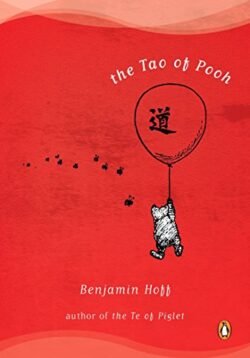“The Tao of Pooh” by Benjamin Hoff, first published in 1982, is a unique book that introduces the principles of Taoism through the beloved characters of A.A. Milne’s Winnie-the-Pooh stories. Hoff uses the simplicity and innocence of Pooh and his friends to explain the complex concepts of Taoism, making the philosophy accessible and relatable to a wide audience. The book delves into the idea that being in harmony with the natural world and understanding one’s own nature is the essence of Tao, and it illustrates how Pooh embodies this philosophy in his actions and outlook on life.
- While the book doesn’t feature characters in a traditional sense, it personifies the Panama Canal as the central "character" in its historical narrative, detailing its conception, birth, and enduring legacy.
- The Panama Canal as the Central Character: The Panama Canal is presented not just as an engineering marvel but as a testament to human ingenuity, ambition, and perseverance. The narrative delves into the struggles encountered during its construction, including the battle against disease, the immense physical labor required, and the technological innovations employed. The canal's story is interwoven with brief accounts of key figures involved in its creation, such as Ferdinand de Lesseps and Theodore Roosevelt, showcasing the human element behind this monumental project.
Character Analysis
- Winnie-the-Pooh (Pooh): Pooh serves as the primary example of Taoist principles in action. His effortless way of going about life, finding joy in the simple things, and solving problems through what seems like inaction or natural intuition, showcases the Taoist idea of "Wu Wei" or effortless doing. Pooh's unassuming wisdom becomes a guide for understanding how to live in harmony with the Tao.
Themes and Analysis
- Simplicity and Naturalness: "The Tao of Pooh" emphasizes the value of simplicity and living in a natural, unforced way. It suggests that happiness and contentment are found in appreciating the simple aspects of life and being true to one's nature.
- Effortless Action (Wu Wei): The book illustrates the concept of Wu Wei through Pooh's actions, showing how effective and harmonious action does not require force or struggle but arises from being in tune with the natural order of things.
- Wisdom in Innocence: Hoff portrays Pooh's innocence and straightforwardness as a form of wisdom, contrasting it with the overcomplicated approaches of other characters and, by extension, society at large.
“The Tao of Pooh” is a thoughtful and charming exploration of Taoist philosophy that resonates with readers of all ages. Through the adventures and personalities of Pooh and his friends, Benjamin Hoff offers profound insights into how to live a happier, more balanced life by embracing simplicity, contentment, and the natural flow of the world. This book remains a popular and enlightening work for those seeking to understand Taoism or find guidance in its principles for personal growth and peace.
If the summary caught your interest,
Consider reading the full book on AbeBooks.
Explore this book on AbeBooks
